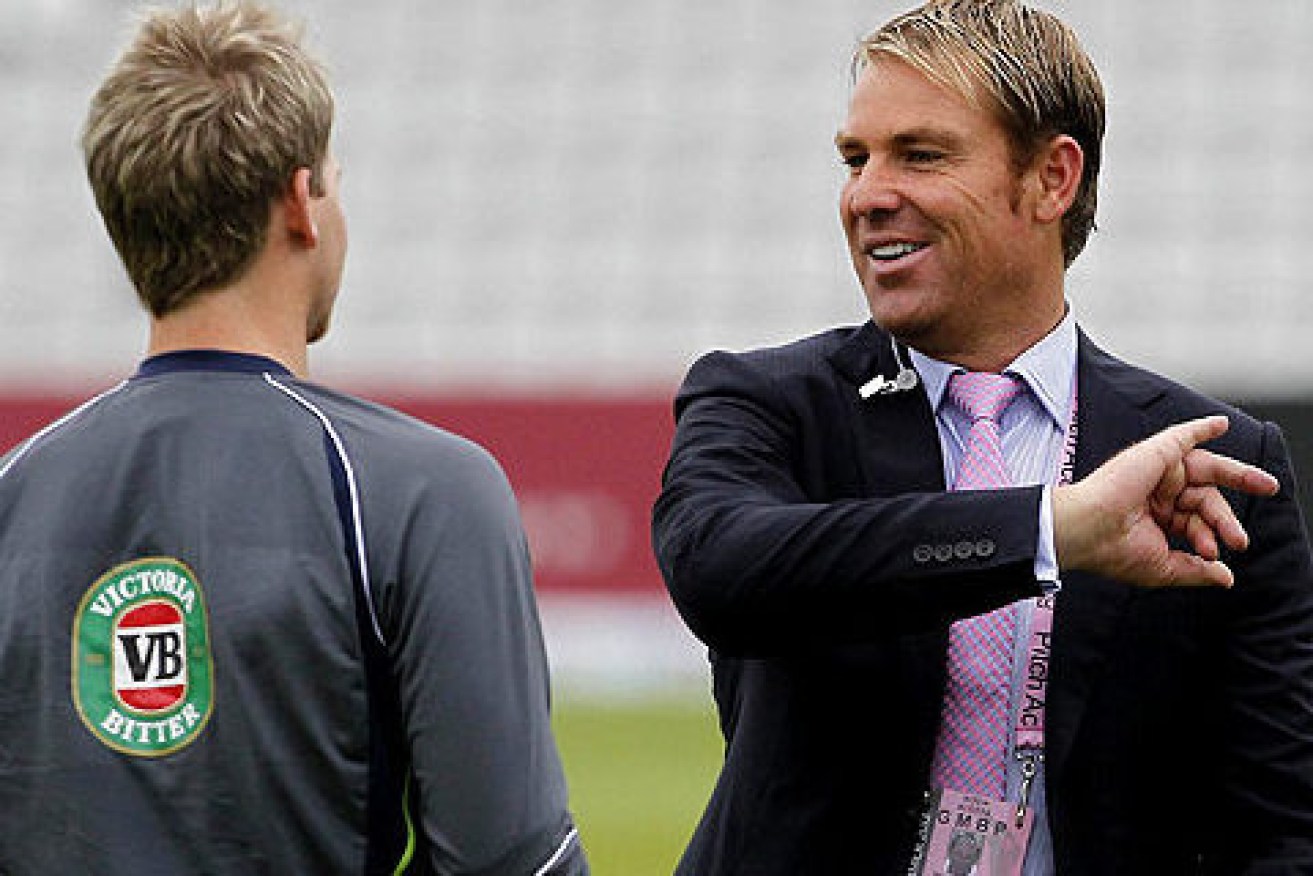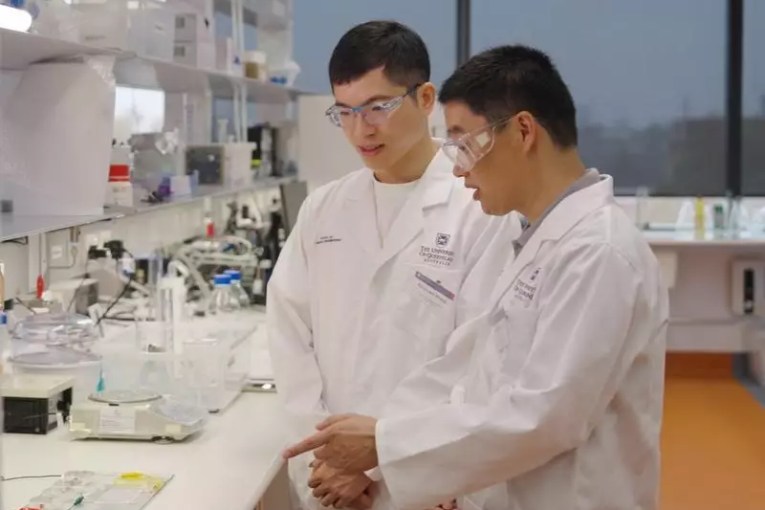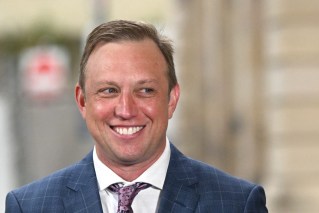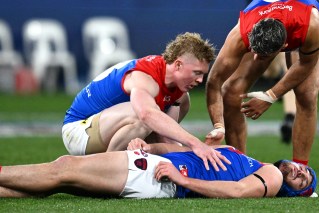Why sitting on the shoulders of greatness makes so many of today’s heroes nervous
You’d be amazed how little influence our former sporting heroes have on their current-day counterparts. But those win-win relationships are well worth cultivating, writes Michael Blucher

Shane Warne shares some advice with a young Steve Smith (left). (File image).
In a previous life, working with professional athletes to help them better understand the intricacies of the environment in which they operated, the conversation often began with the notion of “stakeholder management”.
A little more simply, identifying all the influential relationships in their world, and managing them in a way that gave them the best possible chance of success – on and off the field.
The game’s administrators, the coaches, their peers, the sponsors, the media, support staff, the grass roots players, and of course, the public – the unwieldy multi headed monster that, through social media, provide them with unsolicited feedback on every move they make, at every hour of every day.
Yes people, whatever we may think of our professional athletes, individually or collectively, their world is complex beyond comprehension.
And we whose opinion counts, certainly know a lot more about what they should be doing, and how they should be behaving, than they do.
Typically, the last “influential” stakeholder group to be identified and discussed is the “greats of the game” – the retired legends of whatever sport they play.
They were all too aware of their presence, of course. For many, their childhood heroes were included in the broader sample, even still loomed large in their consciousness on account of the poster they had on their bedroom wall from the age of eight or 10. But now, as an elite athlete themselves, very few saw it as a relationship they could proactively manage, in pursuit of those career-defining “one and two percenters”.
When I went as far as suggesting they might get in contact – fire off a casual text, something along the lines of “Gidday Haydos, as somebody who admired your career from afar, I wouldn’t mind grabbing a cup of coffee sometime and picking your brains….”, most looked at me like I was one of those multi headed monsters.
“Why would I do that? Why would they want to help me?” they’d ask, some even questioning whether yesterday’s heroes – one time their hero – would even know who they were.
Poppycock. They know alright, and almost without exception, they’re chuffed to receive the approach, if for no other reason it’s a welcome reminder of their standing in the game.
Professional athletes are an interesting lot, particularly when it comes to receiving advice. In my experience most shy away, either because by nature, they’re fiercely independent and want to “work it out” for themselves, or deep down, they’re a little fragile and worried that asking others’ opinions – however valuable – might be seen as a sign of weakness.
Perhaps even more simply, they just don’t know the best way to go about it. For some, any approach more personal than a text is akin to swallowing acid.
Whatever the reason, there’s less informal exchange of knowledge from one generation to the next than we might think.
Beyond picking the brains of somebody who’s already sat the exams, and knows a lot of the answers, there’s another benefit in “reaching out”, or more crudely, pandering to the egos of the past greats – it makes it just that little bit harder for them to criticise you publicly.
From a media perspective, the opinions of the “legends” have always mattered, but never more than since the contagion of social media. Now, even the lightest of light-hearted tweets are picked up by the media “professionals” and remoulded into headline news. Legend slams current Test star.
Whether misrepresentative or not, the new world dynamic has placed further importance on the relationship between current and past stars.
Should the modern day mob be worried about what all of “yesterday’s heroes” are saying? Of course not, but there are loud voices and strong voices. Important voices, even deliberately provocative voices.
I say “bring ‘em inside the tent”. As the old saying goes – keep your friends close, keep your enemies even closer.
“Hey Warnie, Mitch here. Love to have a yarn to you about my action some time if you can spare half an hour. I know you bowled spin but hey, there’s nobody who knows more about the game than you. Look forward to hearing from you.”
Now, is a bit of “one on one” time – a stronger understanding of Mitchell Starc at a human level – going to help temper Shane Warne’s views? Dial him back a bit? Probably not. Warnie is paid big bucks to have and express big opinions.
But one thing’s for sure – it’s not going to hurt.
We’re delving into neuro science here. As humans, we all crave acknowledgment, nobody more so than those who were once constantly acknowledged publicly, but now…. not so much. Relevance deprivation syndrome, it’s called.
The point is, athletes can’t have too many people in their camp, influential supporters who know not only what they do, but who they are as people.
Additionally, done the right way – like Steve Smith did with Warne this week, jumping on the phone and politely – respectfully – calling him out on his trash talk, shows courage, even swings the tide of public opinion.
This all might sound a little pollyanna, but I swear, I’ve seen proactivity deliver in spades. Even with the most minor stakeholders.
For instance the first thing former Aussie quick Michael Kasprowicz did when he arrived in the UK to play county cricket was head down to the curator’s shed with a carton of lager. “Gidday boys, just thought I’d come and say hello. I’m Michael. Who’d like a beer?”
Sip, chat, chat, sip, laugh. You don’t reckon Kaspa gained some valuable intel – even copped a few favours – across the course of the county season?
A far more recent example – Pat Cummins, one of the most likeable and best balanced individuals Australian cricket has produced in the past decade, rounding up Mark Taylor for a beer to talk captaincy. No fierce independence or emotional insecurity there. Just smart play.
Not only is Tubby now almost guaranteed to be inside the Cummins’ tent, there’s every chance our latest Test skipper will have learned a few answers to those curly exam questions.
Proactive relationship management – give it a go sometime. That’d be my advice, but as we all know, with advice, you can take it or leave it.
And one last piece – shut up, Warnie. Just every now and then.












